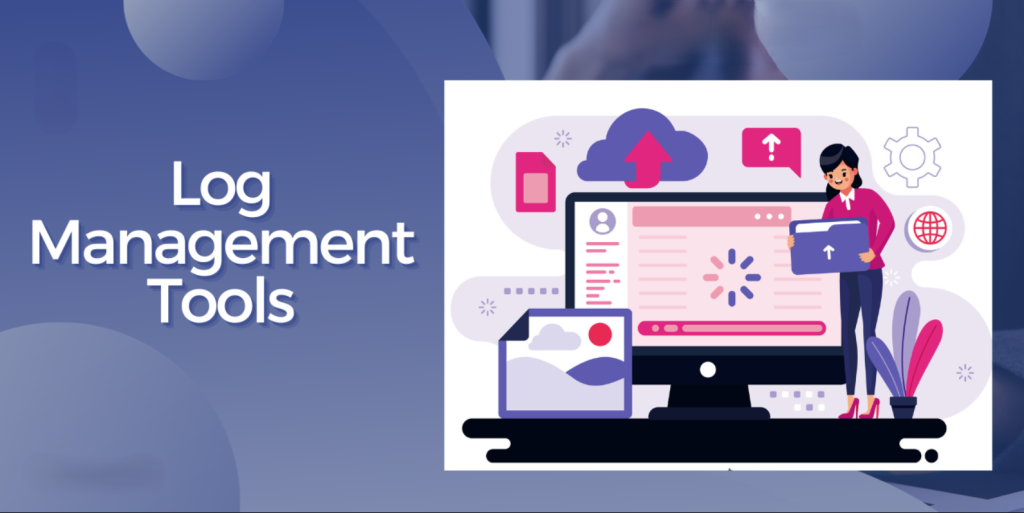
Logs are an essential part of modern IT systems. They provide detailed insights into the operations, performance, and security of applications and infrastructure. Effective log management helps organizations monitor their systems, troubleshoot issues, and enhance security. In this guide, we present a detailed list of the most popular and effective log management tools available today.
1. Splunk
Splunk is one of the most popular log management tools, offering robust features for log analysis and monitoring.
- Features: Real-time search, analysis, and visualization of machine data. Advanced machine learning capabilities.
- Use Cases: IT operations, security, and DevOps.
- Strengths: Scalable, supports large data volumes, and offers extensive third-party integrations.
2. Elastic Stack (ELK Stack)
The Elastic Stack consists of Elasticsearch, Logstash, and Kibana, forming a powerful open-source log management and analysis suite.
- Features: Centralized logging, real-time analytics, and rich visualization.
- Use Cases: Application performance monitoring, security analytics, and operational monitoring.
- Strengths: Cost-effective, customizable, and open-source.
3. Graylog
Graylog is an open-source log management platform known for its user-friendly interface and efficient performance.
- Features: Centralized log storage, quick search capabilities, and alerting.
- Use Cases: Application debugging, security event management, and compliance reporting.
- Strengths: Simple setup, intuitive UI, and affordable pricing.
4. LogRhythm
LogRhythm provides enterprise-grade log management and security information and event management (SIEM).
- Features: Threat detection, log collection, and machine analytics.
- Use Cases: Security operations, compliance, and IT operations.
- Strengths: Strong security focus, advanced threat intelligence, and user-friendly dashboards.
5. Datadog
Datadog is a comprehensive monitoring and analytics platform that also offers log management capabilities.
- Features: Log ingestion, monitoring, and correlation with metrics and traces.
- Use Cases: DevOps, cloud monitoring, and application performance management.
- Strengths: Easy integration with cloud services and seamless correlation of logs with other metrics.
6. Sumo Logic
Sumo Logic is a cloud-native log management and analytics platform built for scalability.
- Features: Real-time log analytics, security analytics, and predictive insights.
- Use Cases: Cloud monitoring, DevSecOps, and compliance.
- Strengths: Scalable, fast, and designed for modern cloud architectures.
7. Papertrail
Papertrail is a simple and lightweight log management solution suitable for small to medium-sized businesses.
- Features: Real-time log aggregation, live tailing, and alerts.
- Use Cases: Debugging, error tracking, and performance monitoring.
- Strengths: Easy to use, affordable, and quick to set up.
8. SolarWinds Log Analyzer
SolarWinds Log Analyzer is a powerful log management tool that integrates with other SolarWinds products.
- Features: Real-time log streaming, search, and event correlation.
- Use Cases: Network troubleshooting, application monitoring, and compliance.
- Strengths: Seamless integration with SolarWinds ecosystem and easy setup.
9. Fluentd
Fluentd is an open-source data collector that helps with log aggregation and processing.
- Features: Log collection, transformation, and forwarding.
- Use Cases: Unified logging and monitoring for cloud-native applications.
- Strengths: Lightweight, flexible, and open-source.
10. LogDNA
LogDNA is a log management tool designed for modern DevOps teams and cloud environments.
- Features: Centralized log storage, real-time search, and custom parsing.
- Use Cases: Kubernetes log management, security monitoring, and troubleshooting.
- Strengths: Easy Kubernetes integration and intuitive interface.
11. ManageEngine EventLog Analyzer
ManageEngine EventLog Analyzer is a comprehensive tool focusing on log management and compliance.
- Features: Log analysis, audit trails, and compliance reporting.
- Use Cases: Security audits, compliance management, and IT operations.
- Strengths: Affordable and feature-rich for SMBs and enterprises.
12. Humio
Humio is a modern log management solution emphasizing real-time insights and scalability.
- Features: Real-time log data streaming, advanced search, and analytics.
- Use Cases: Security operations, DevOps, and incident response.
- Strengths: High-performance search and unlimited scalability.
13. Syslog-ng
Syslog-ng is an open-source log management tool focusing on log collection and forwarding.
- Features: Log routing, filtering, and centralization.
- Use Cases: Network monitoring, application logging, and system auditing.
- Strengths: Lightweight and flexible configuration options.
14. Splunk Light
A lighter version of Splunk, tailored for small IT environments and startups.
- Features: Basic log collection, monitoring, and search capabilities.
- Use Cases: Small-scale IT operations and troubleshooting.
- Strengths: Cost-effective alternative to full Splunk.
15. Nagios Log Server
Nagios Log Server provides centralized log management and monitoring.
- Features: Log storage, search, and alerting.
- Use Cases: Network monitoring, event logging, and security.
- Strengths: Integrates well with other Nagios tools.
Choosing the Right Log Management Tool
When selecting a log management tool, consider the following:
- Scale and Volume: Choose a solution that can handle your organization’s data volume.
- Ease of Use: Prioritize tools with intuitive interfaces and easy deployment.
- Integrations: Ensure compatibility with your existing systems and applications.
- Budget: Select a tool that aligns with your budget without compromising essential features.
- Security and Compliance: Evaluate the tool’s ability to meet regulatory requirements and enhance security.